The thing is, of course, that Robin did keep his advice to himself. He did not undercut Will’s leadership until asked. It’s quite a contrast to other versions of the Robin Hood legend where Robin is the outlaw leader and a character such as Will Scarlet in Robin of Sherwood (where his real name is Will Scathlock) or Robin Hood: Prince of Thieves rages against his leadership. Robin is not full of "piss and wind” (to borrow a line from Prince of Thieves about its Will Scarlet who questions Robin's leadership).
Stephen Knight has referred to Richard Greene’s Robin Hood as “squadron leader Robin Hood”. But he’s not the leader yet -- Will is. And Robin respects the chain of command. Still, Robin is not going to throw a fight. He dodges Will’s blows and gives his leader a hard knock on the helmet.
Robin's has had a fellow outlaw named Will with a last name beginning with S since the earliest surviving ballads. In A Gest of Robyn Hode, the character is referred to as both Scarlock and Scatheloke in different sections. This early version of the name essentially means "lock-smasher", a good name for the hardened outlaw of the medieval ballads or indeed this episode. The more common surname of scarlet refers to an expensive type of cloth (usually with an expensive red dye) -- and the Will Scarlet character is sometimes portrayed as a member of the higher gentry or the nobility as befitting such a name. Sometimes, like in Anthony Munday's Elizabethan drama The Downfall of Robert, Erle of Huntington, the 1883 children's novel The Merry Adventures of Robin Hood of Great Renown in Nottinghamshire and the 1952 film The Story of Robin Hood and His Merrie Men, the various Wills are separate characters. Other times, they are combined into a single character. A Will Scarlet (actually Scarlets - although the different actors are meant to play the same character) will turn up much later in the series.
The Will in this episode is clearly from the lower classes, and he correctly calls Robin out for being a member of the gentry (although not the nobility). Before his outlaw days, Robin was certainly in a privileged position compared to the rest of the gang - although this Robin wasn't an earl or other high rank as in some versions of the legend. Robin doesn't judge the targets based on their rank -- but on their personality.
Actor Bruce Seton does a superb job at playing the grouchy Will. However, it's somewhat ironic for him to complain about Robin's elevated status. Seton would return in another Sapphire Films production produced by Hannah Weinstein, and written by Ring Lardner Jr and Ian McLellan Hunter (still using pseudonyms) -- The Adventures of Sir Lancelot starring William Russell. Seton would play the lofty King Arthur for the first three episodes. And in real life, upon the death of his brother in 1963, Bruce Seton was elevated to 11th Seton Baronet.
Robin shows his characteristic graciousness and tries to make amends with the leader whose head and ego he had just bruised.
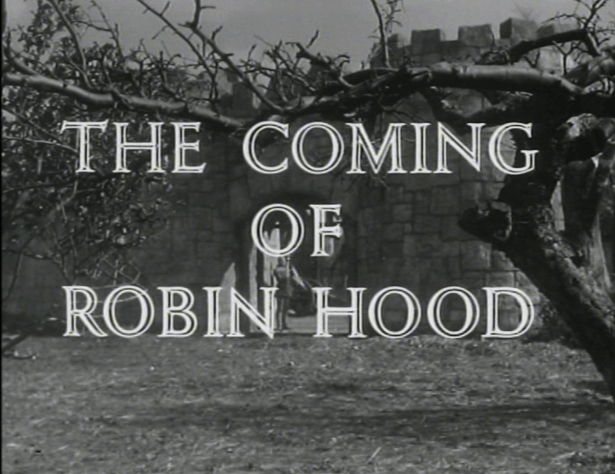
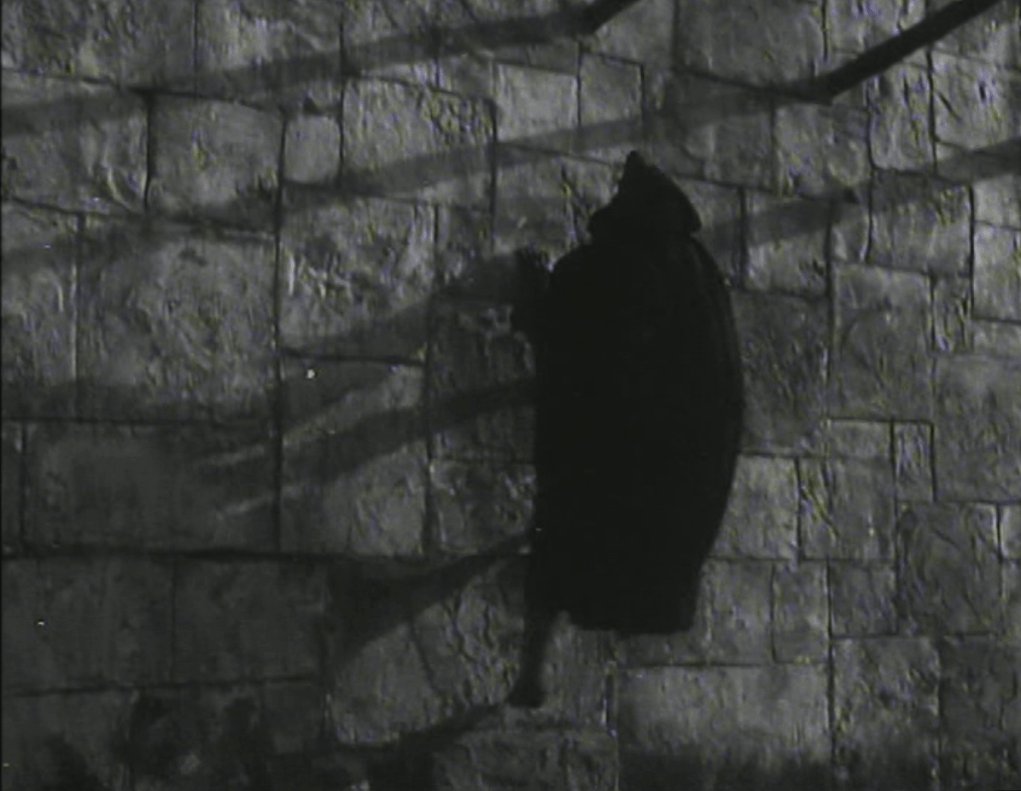
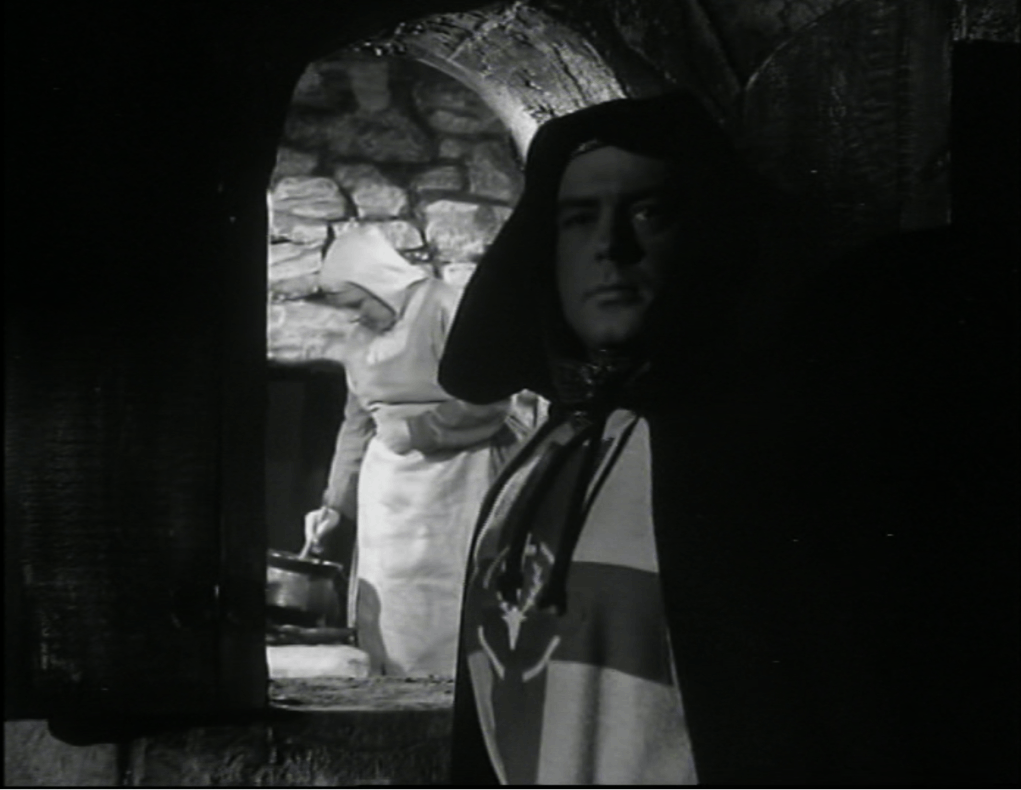
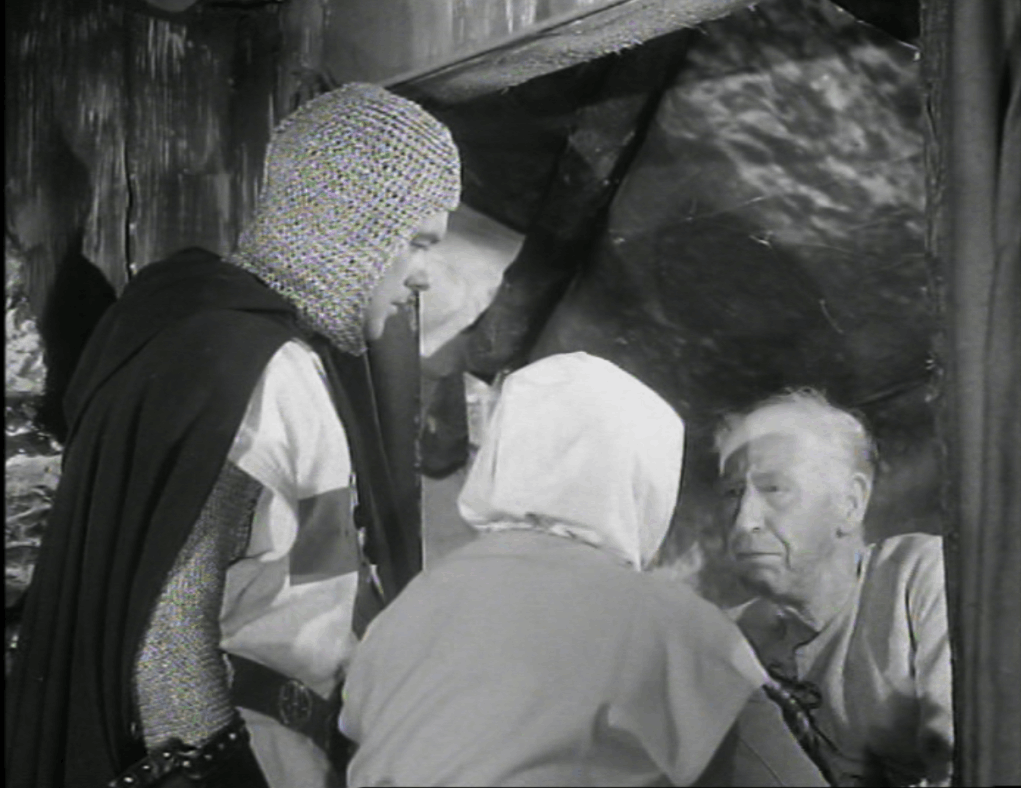
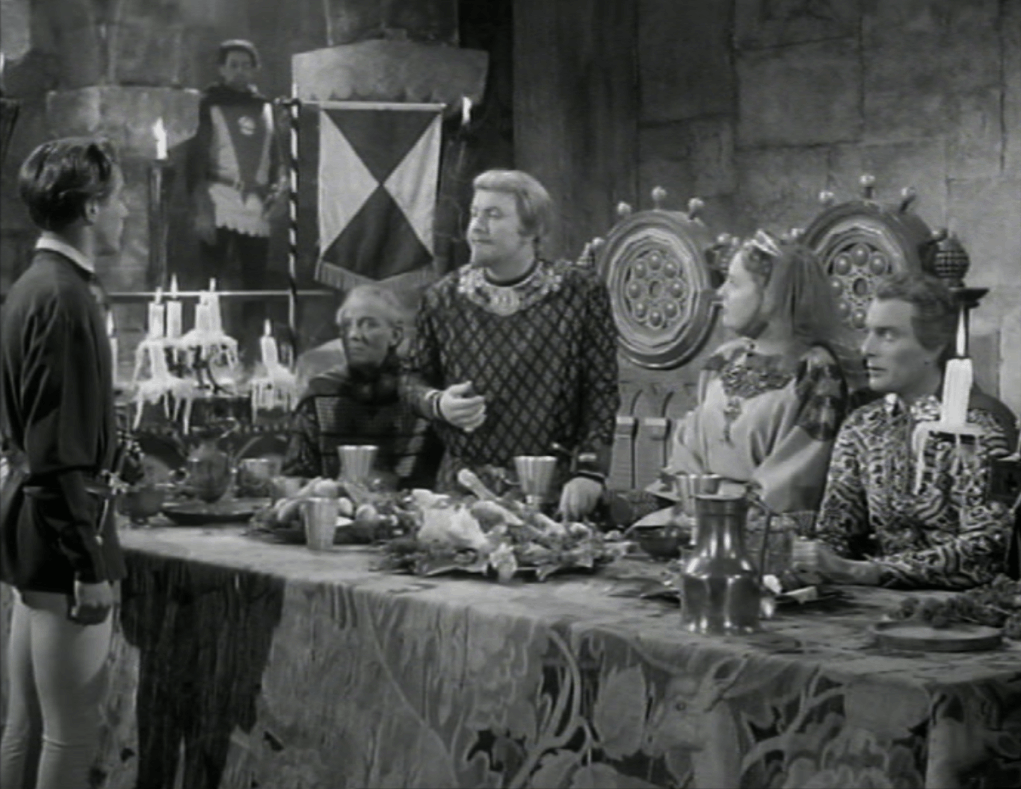
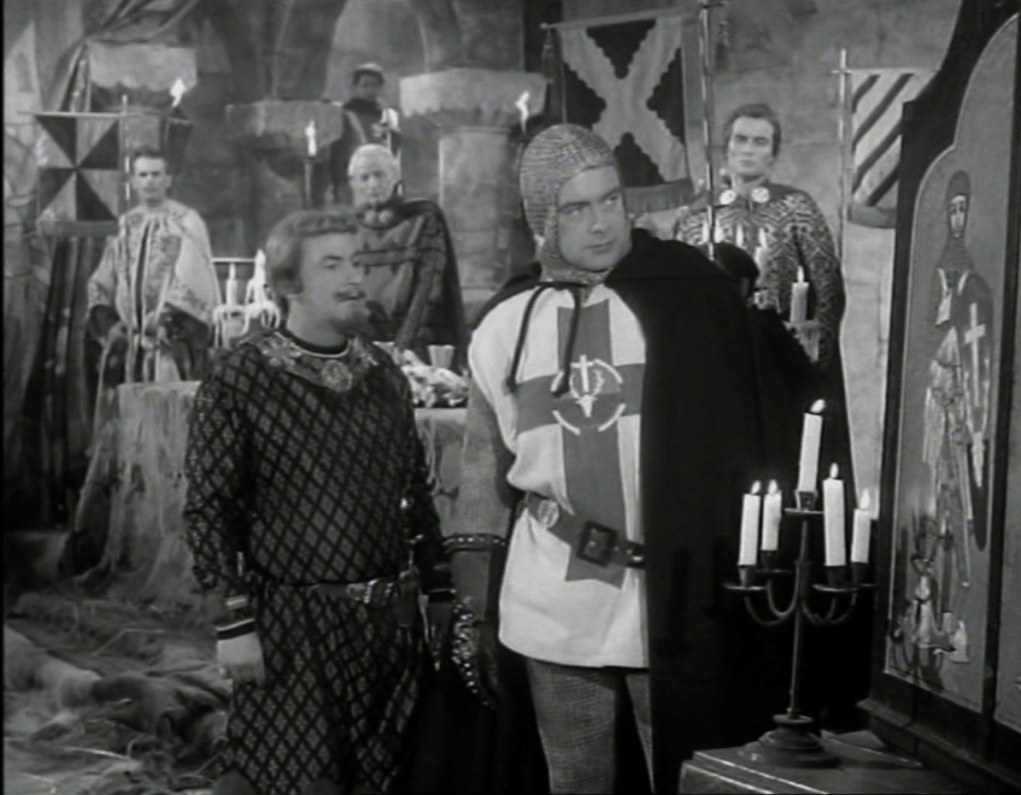
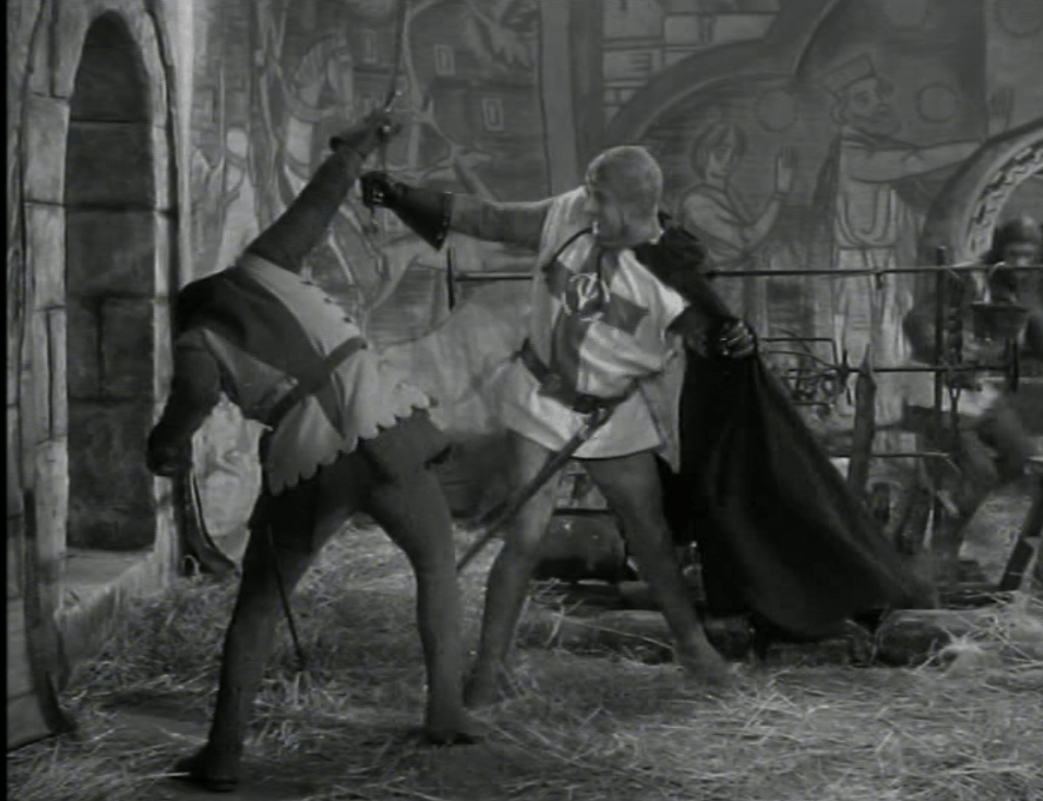
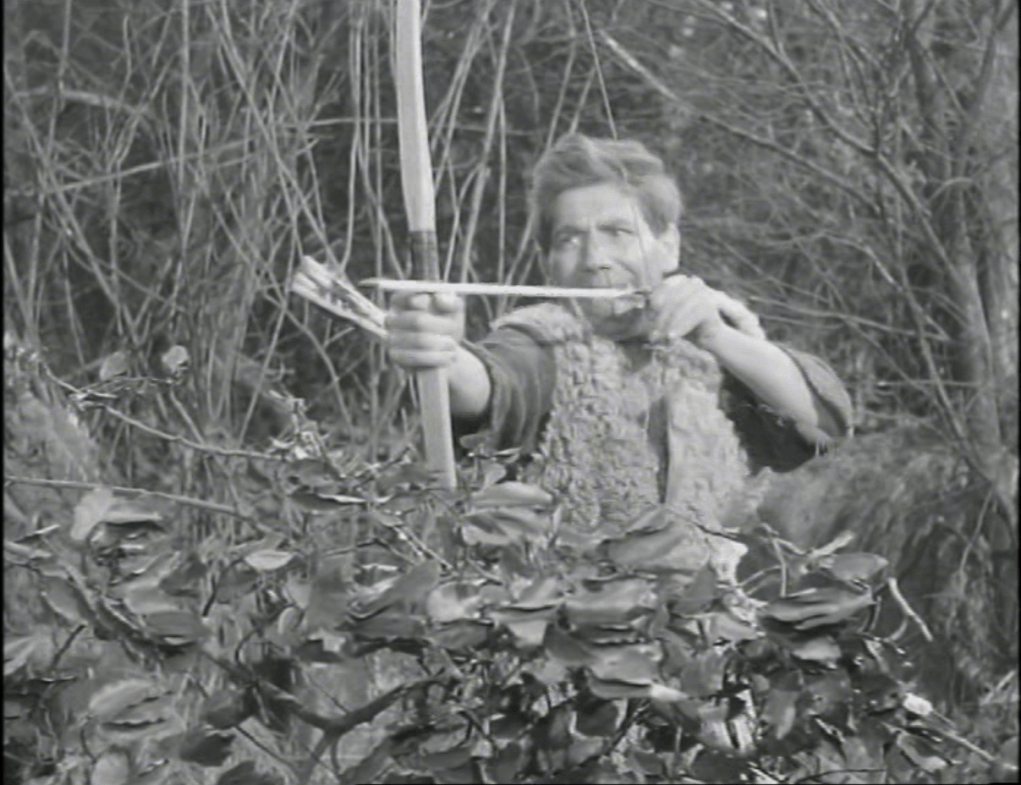
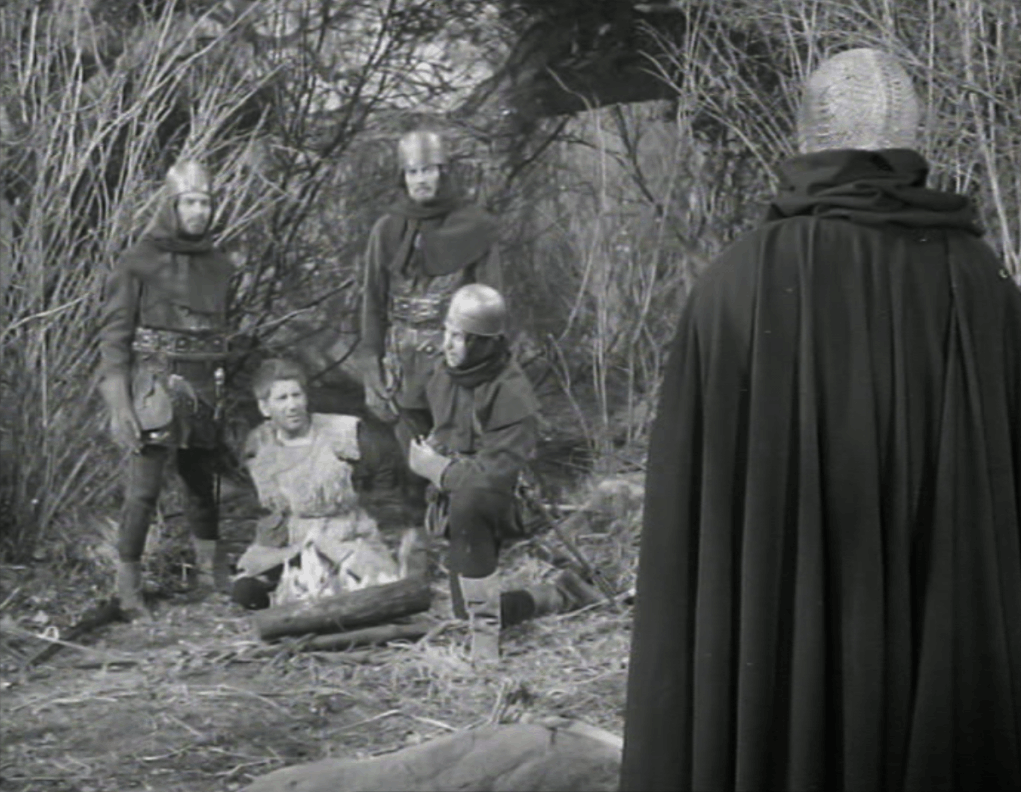
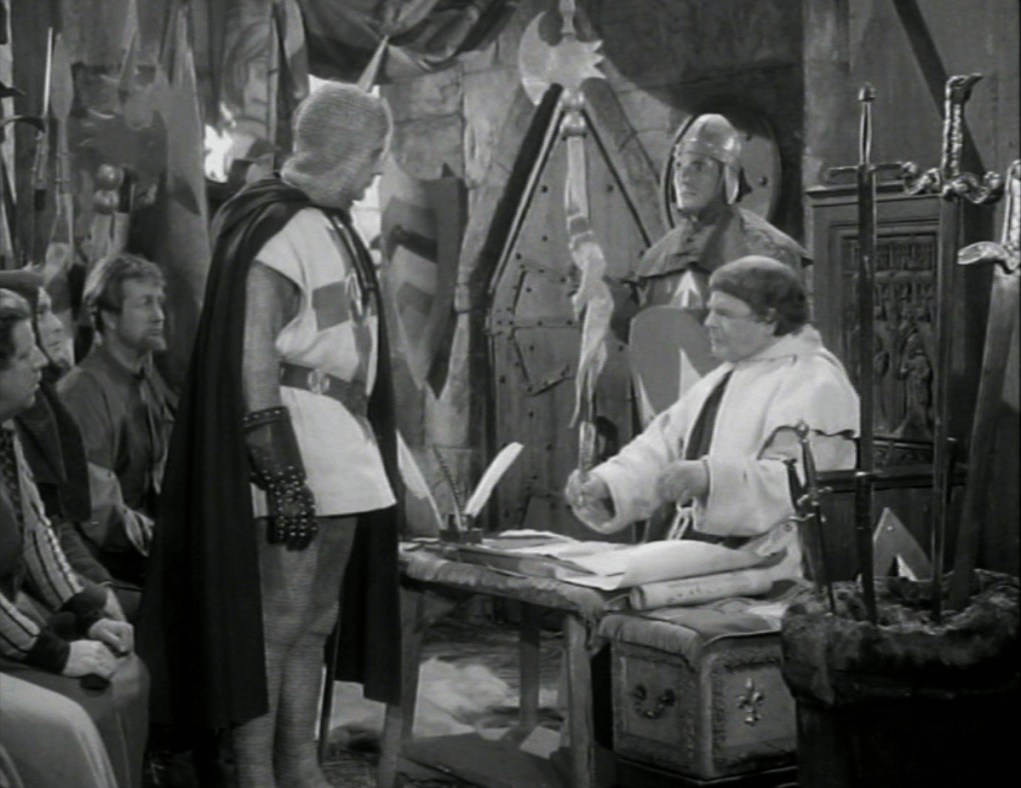
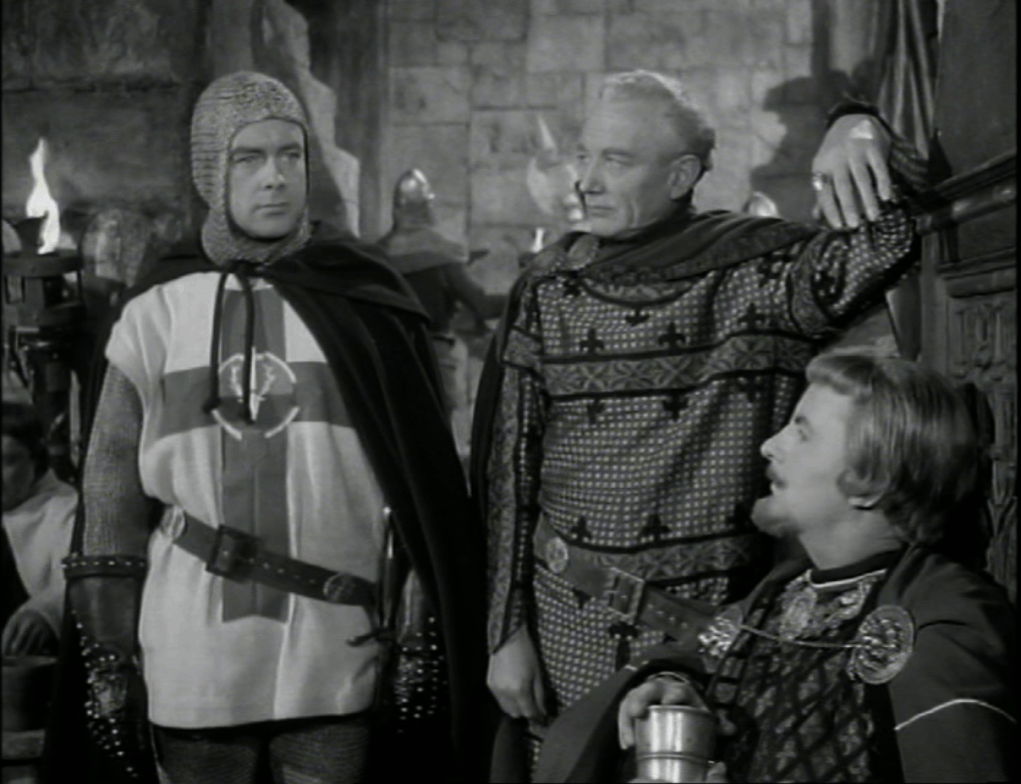
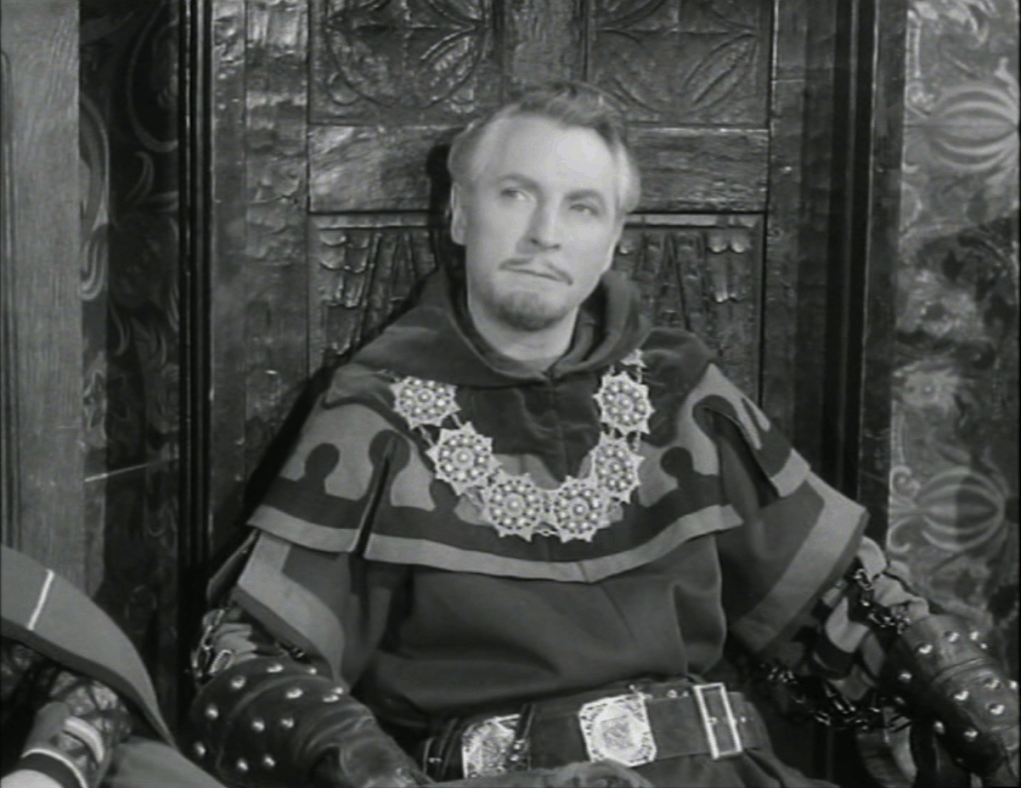
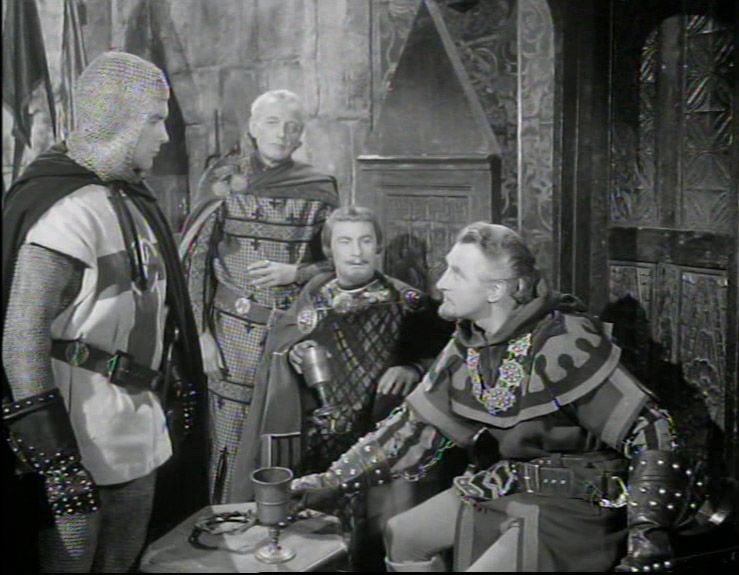
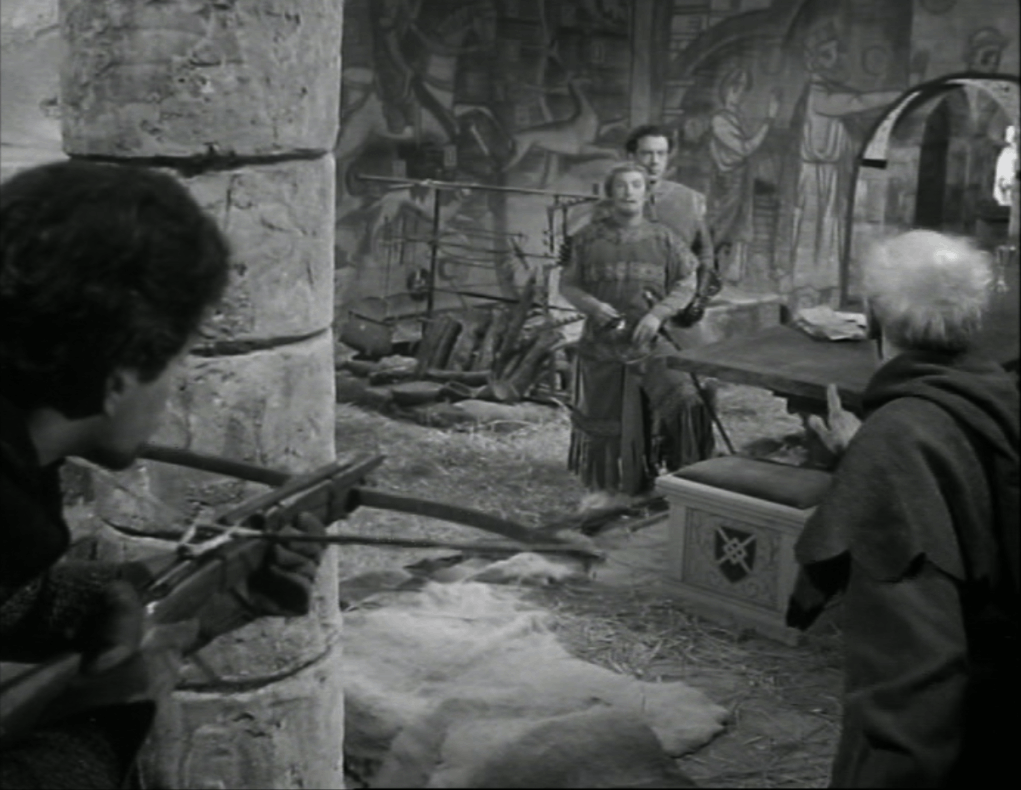
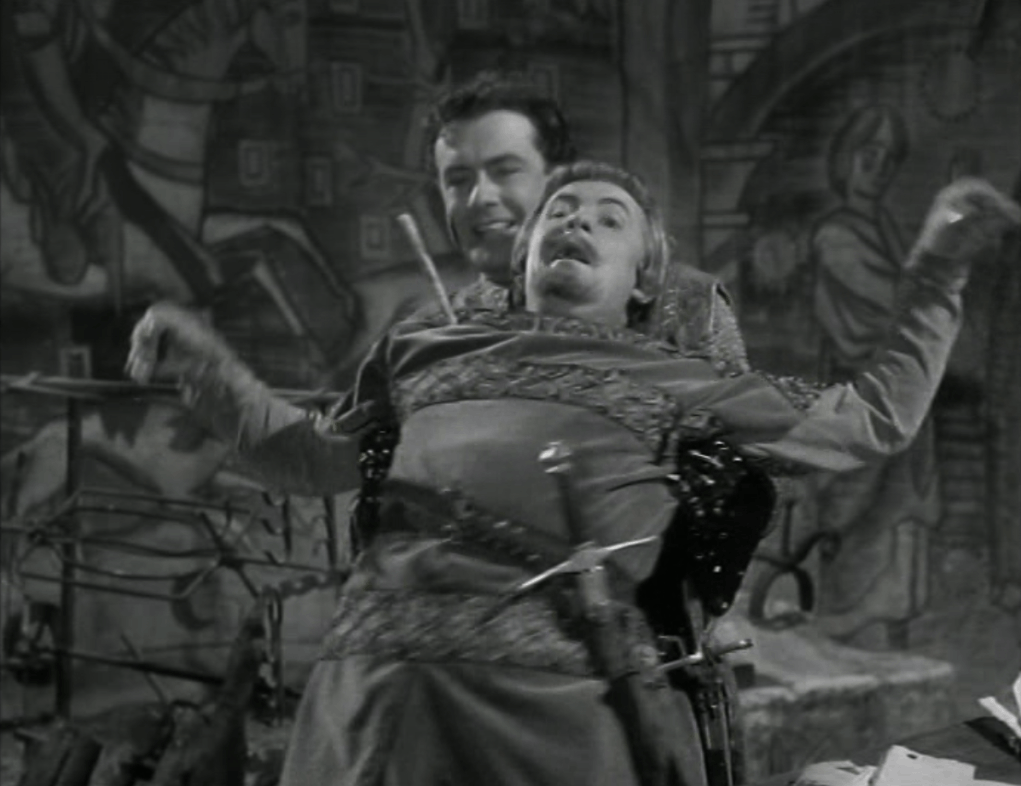
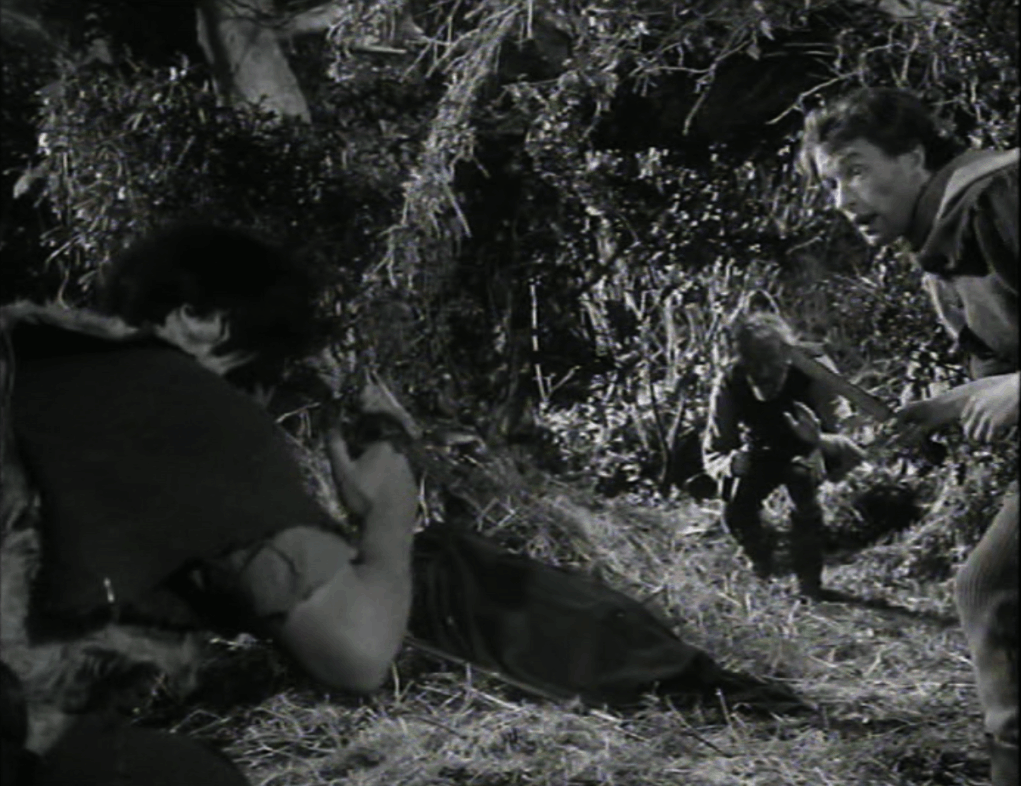
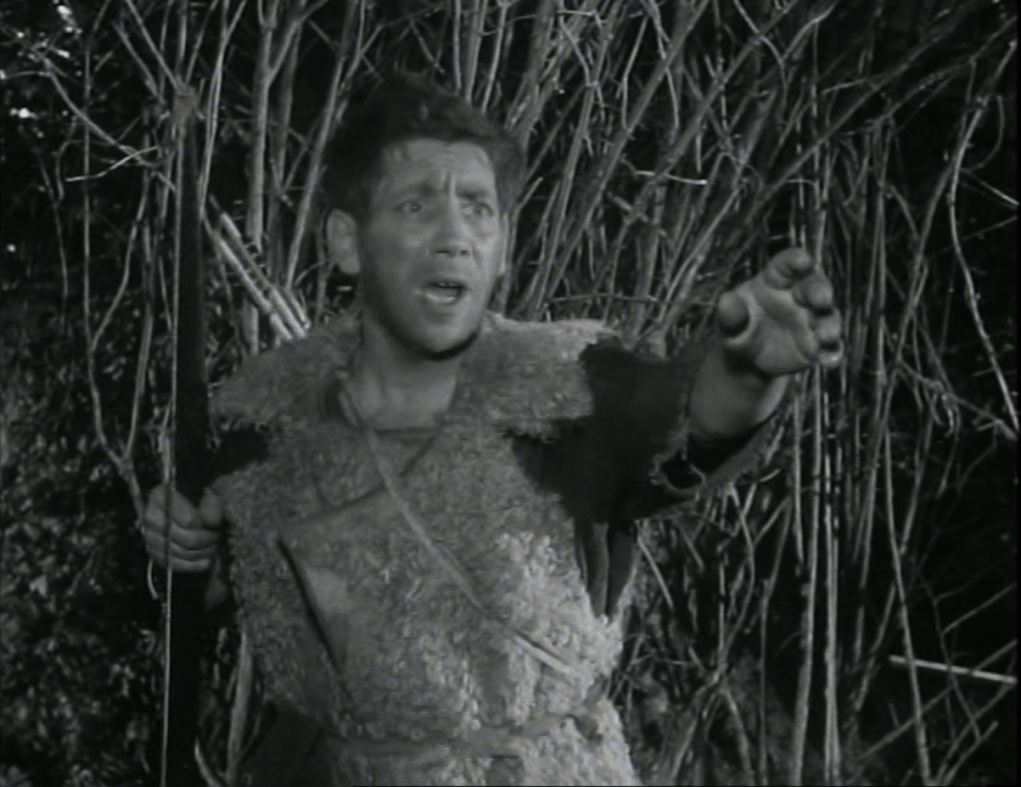
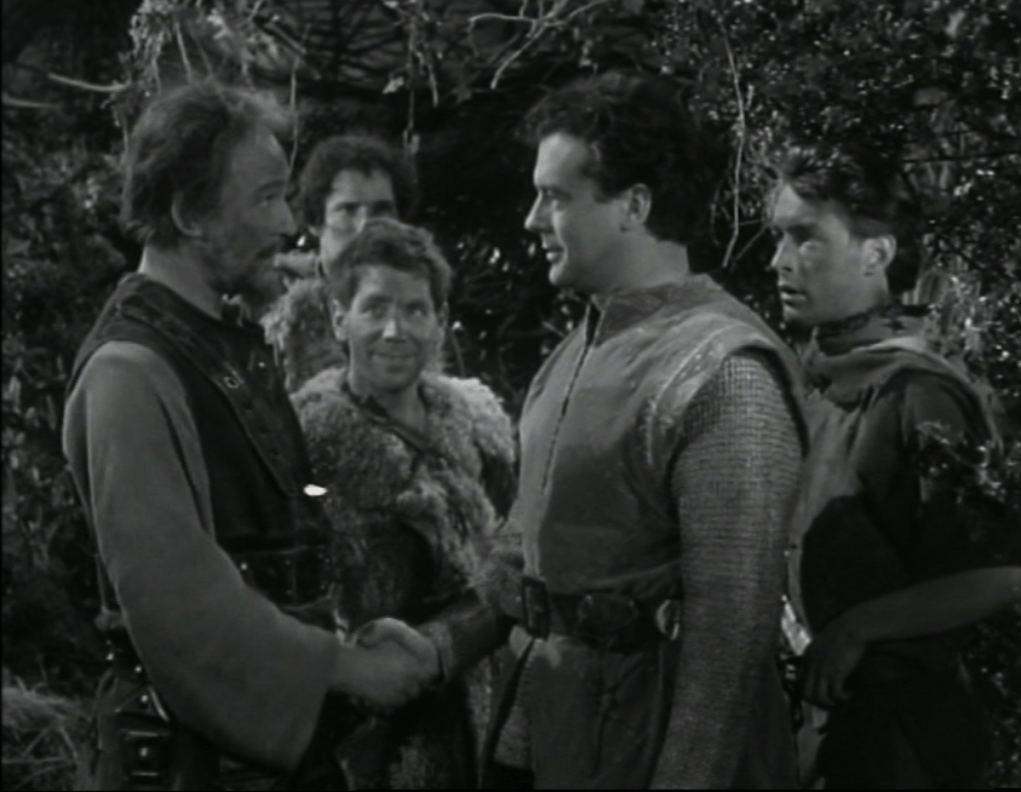
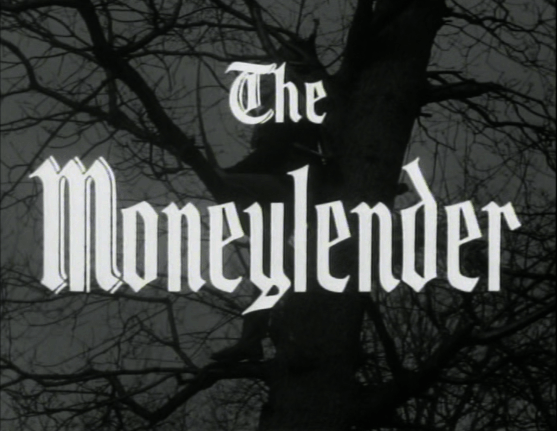
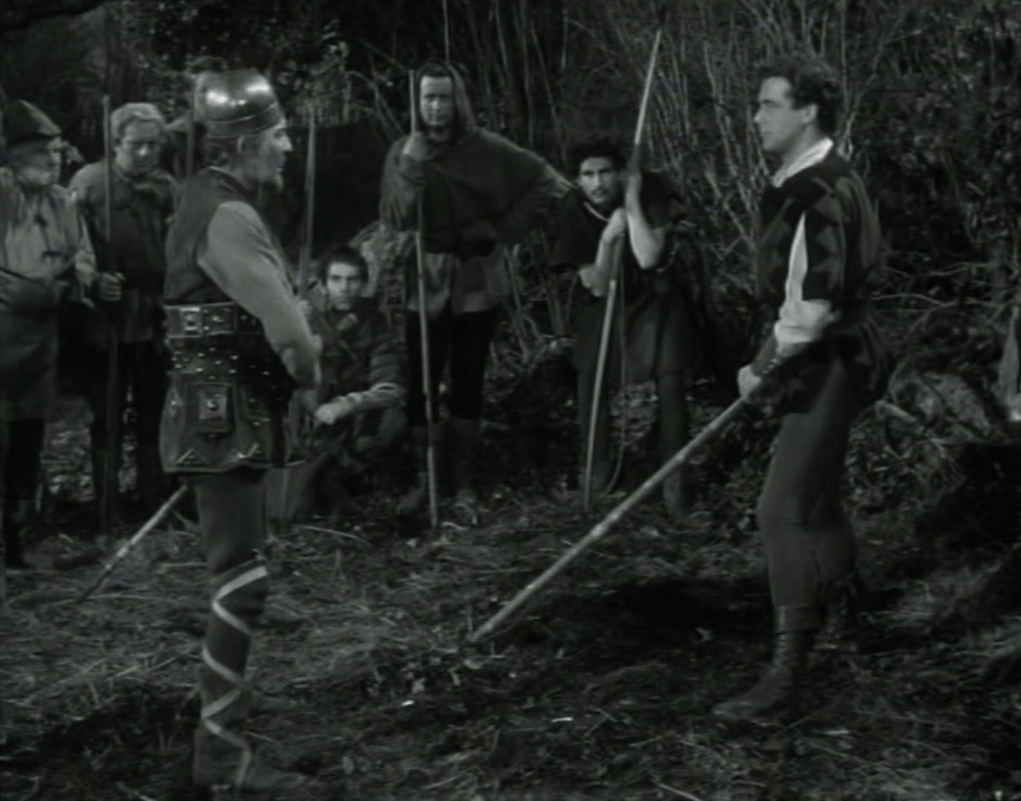
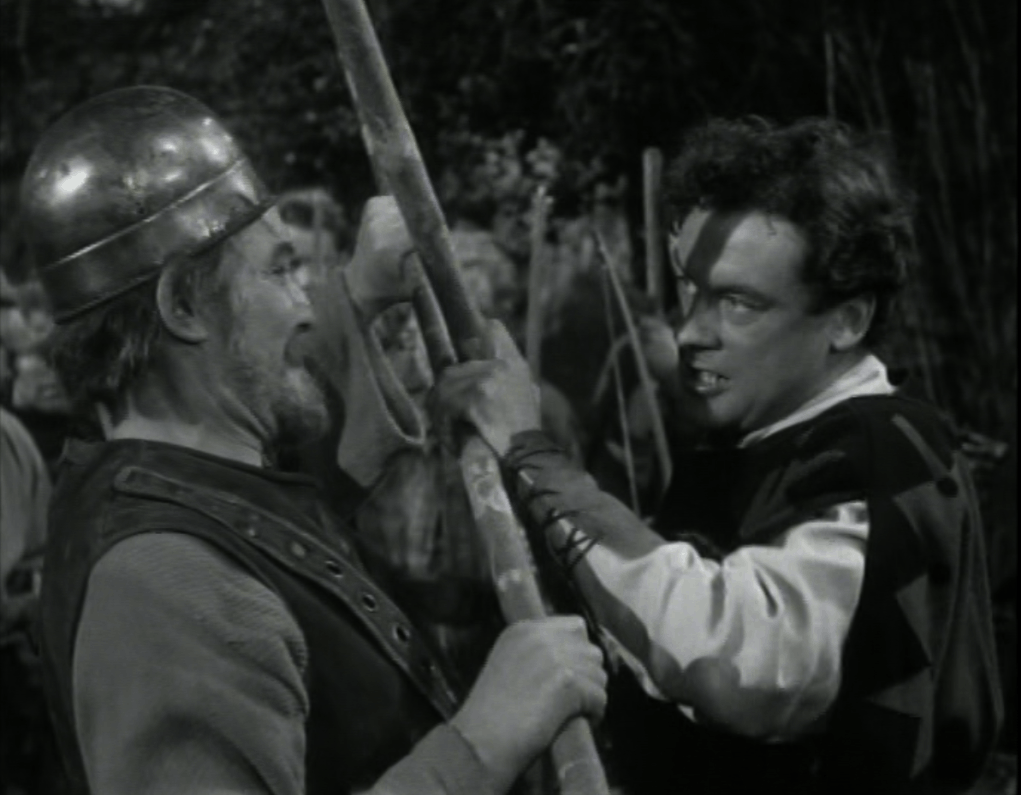
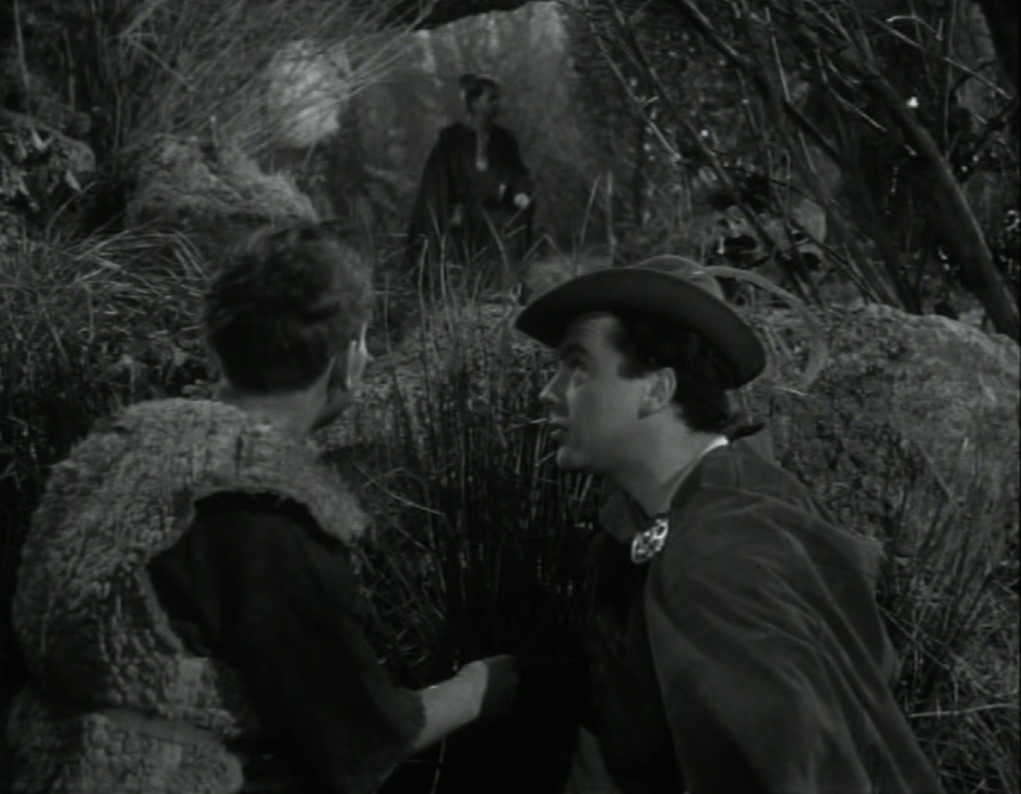
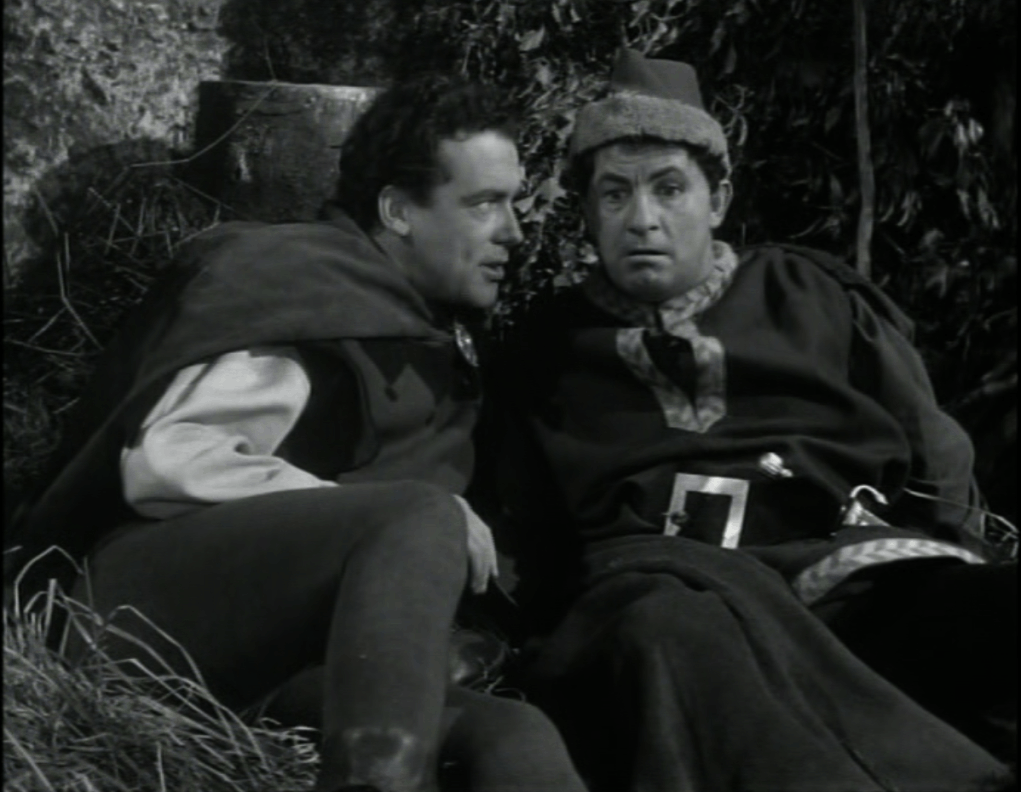
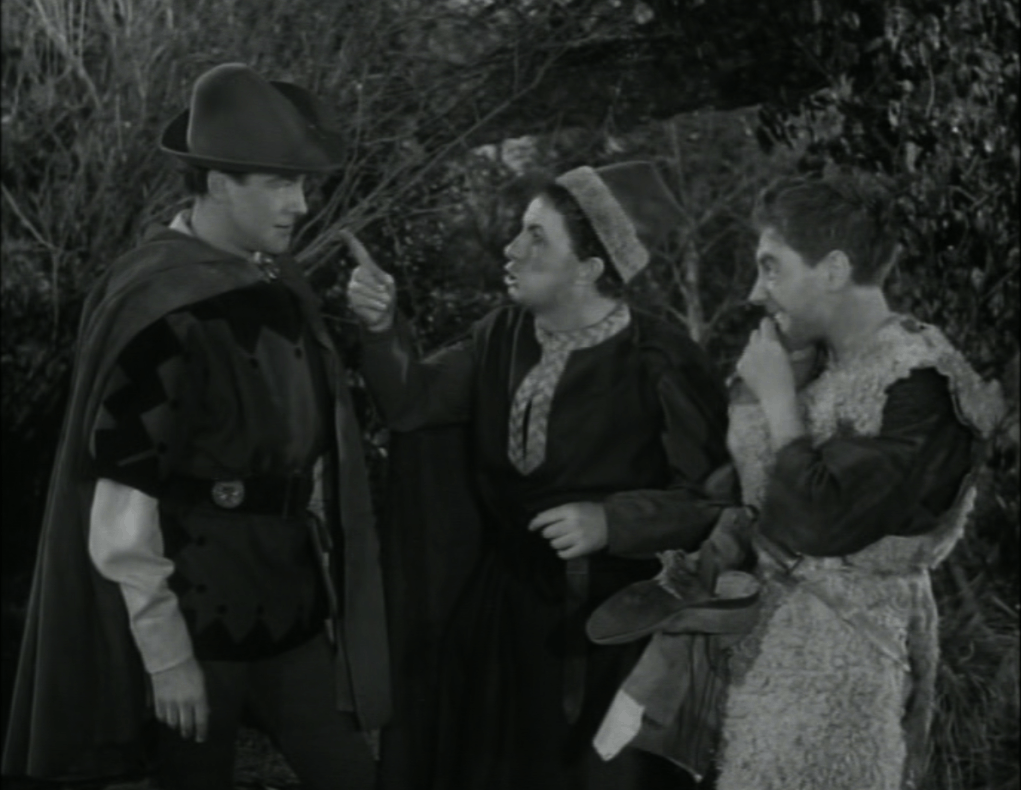
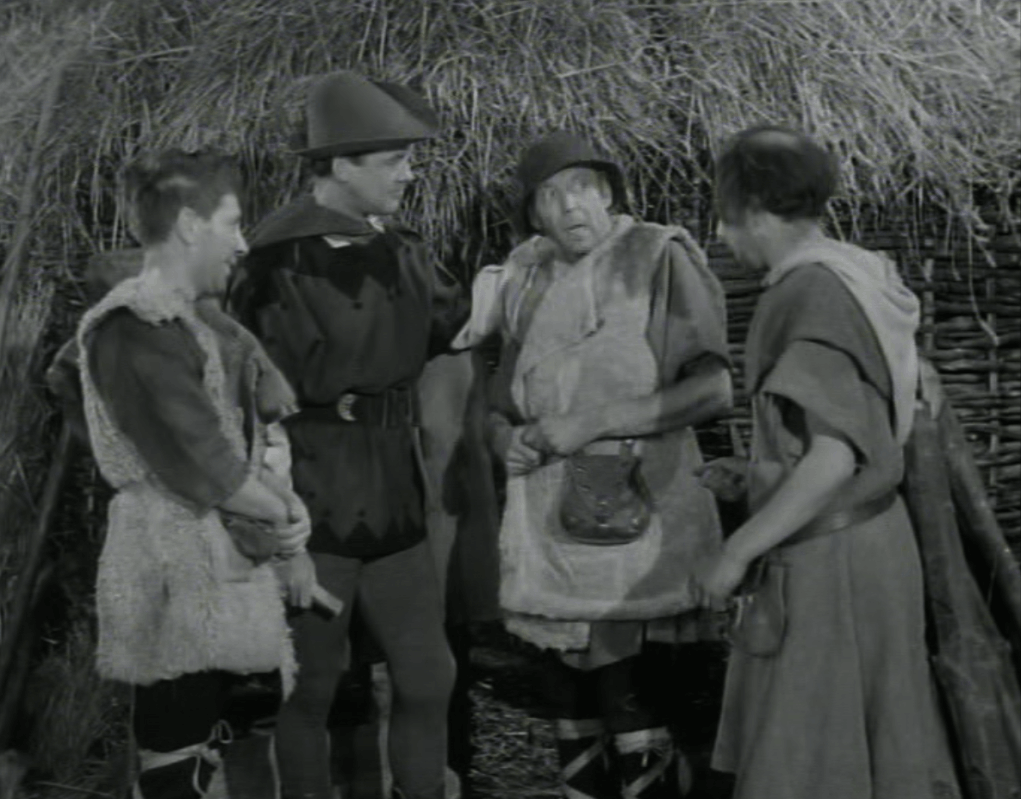
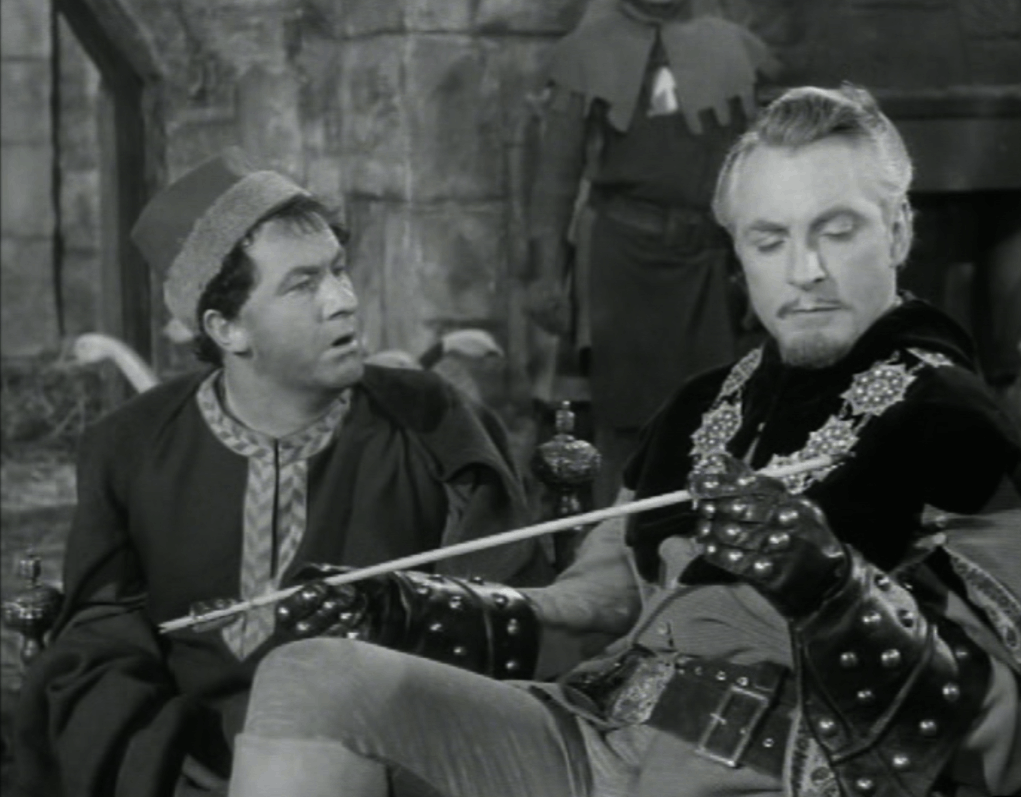
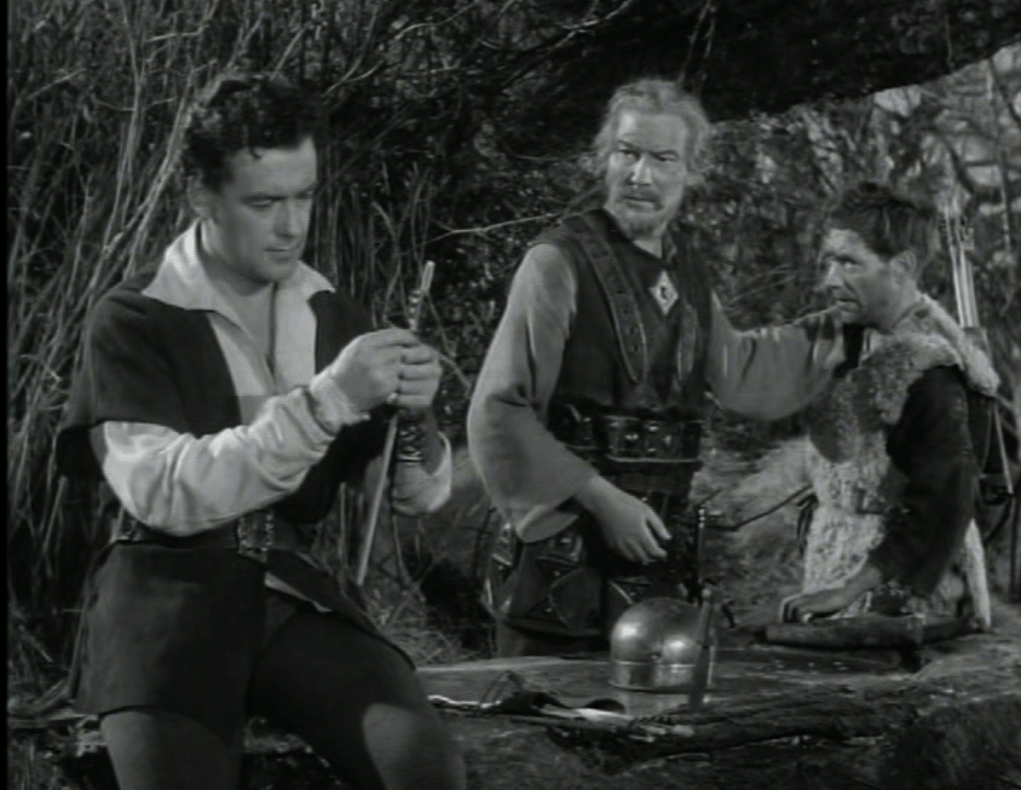
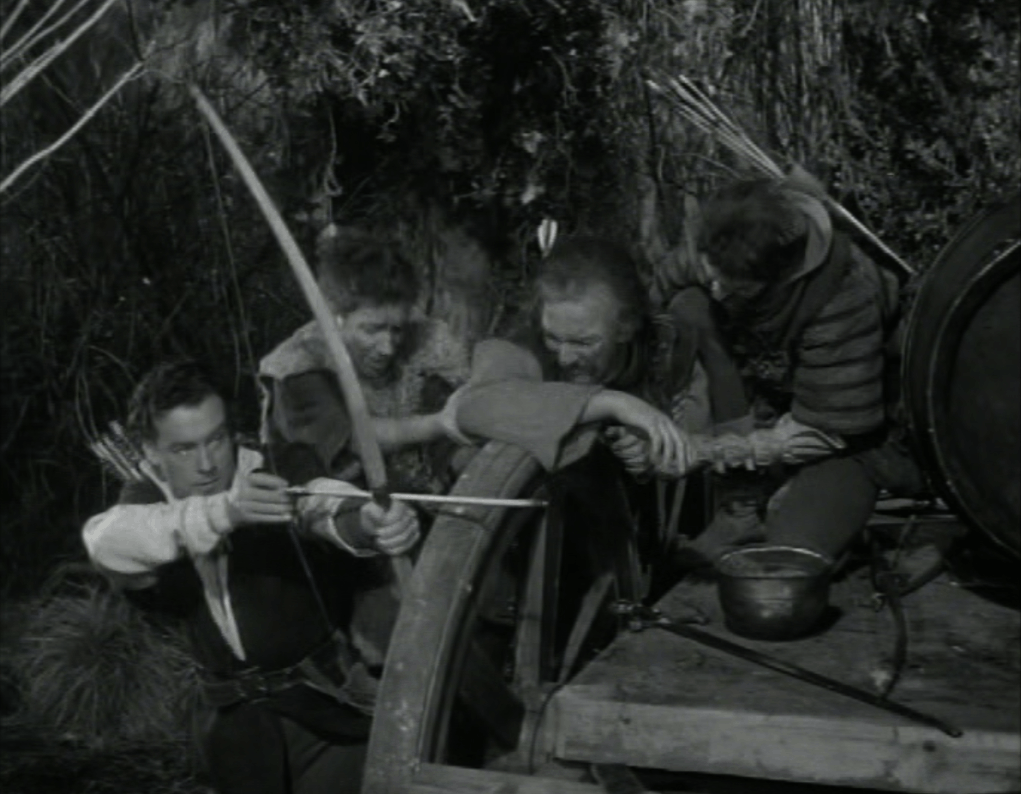
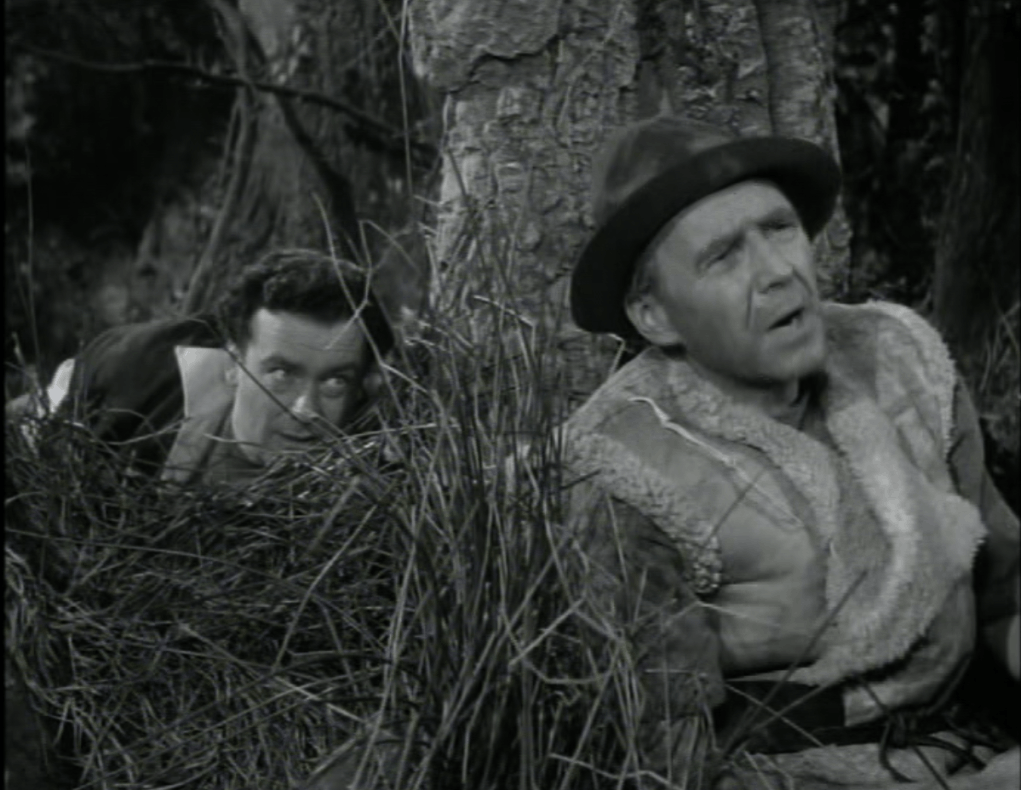
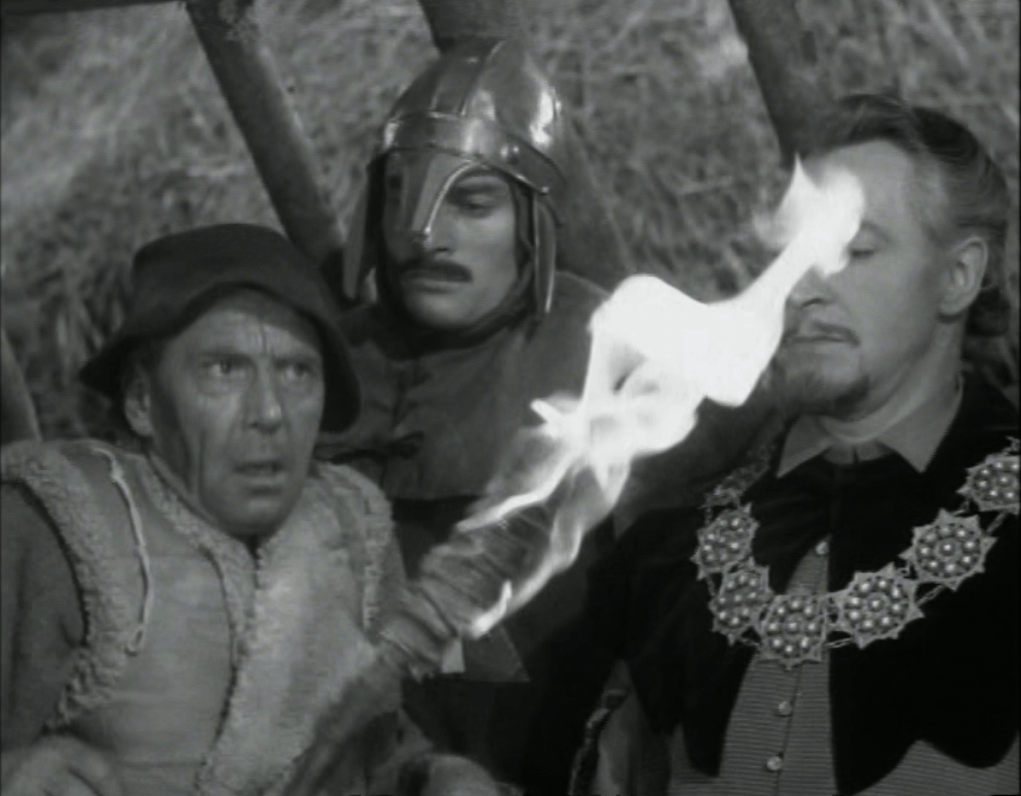
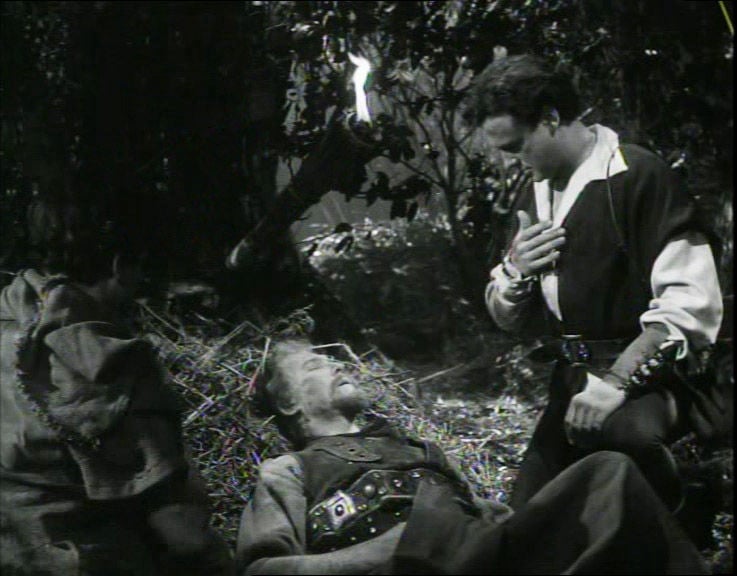
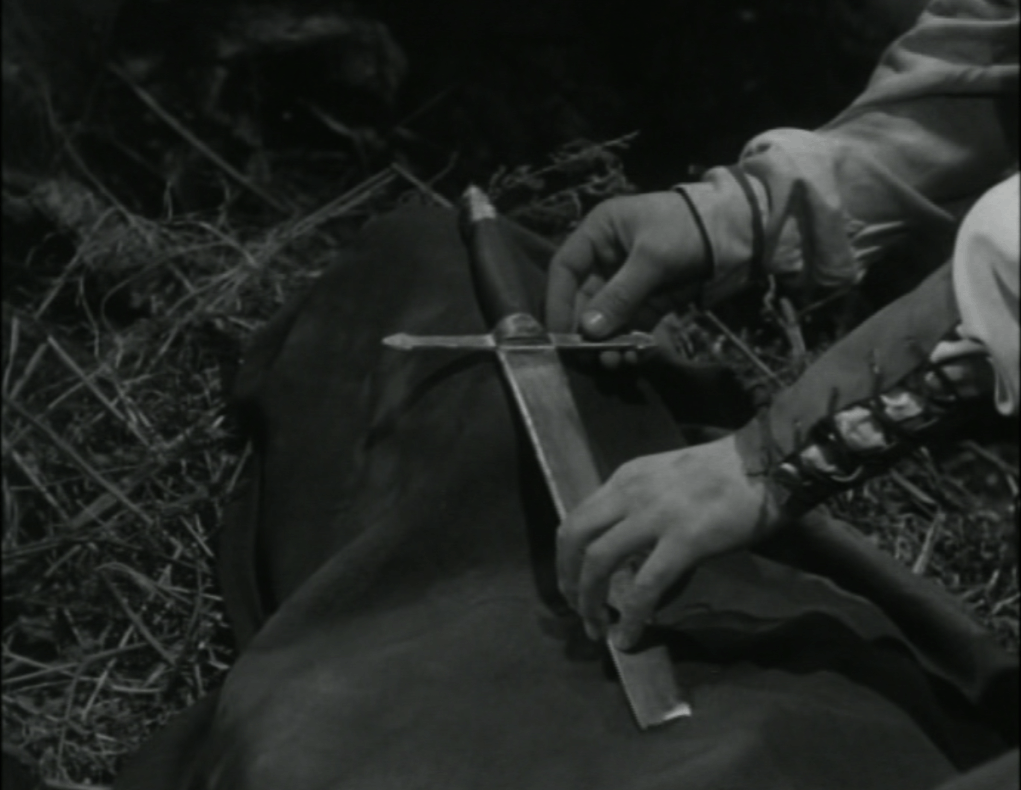
Contact Us